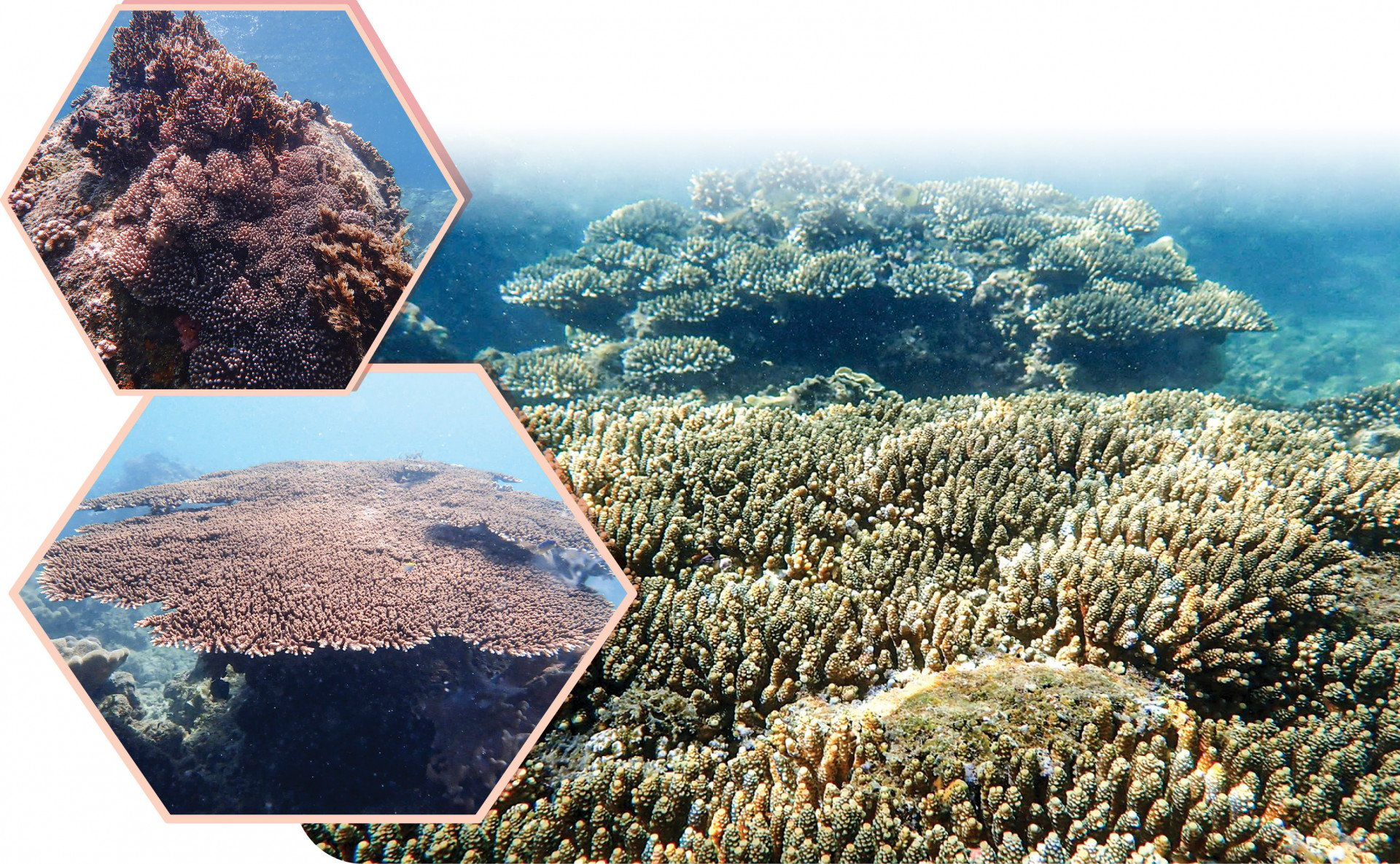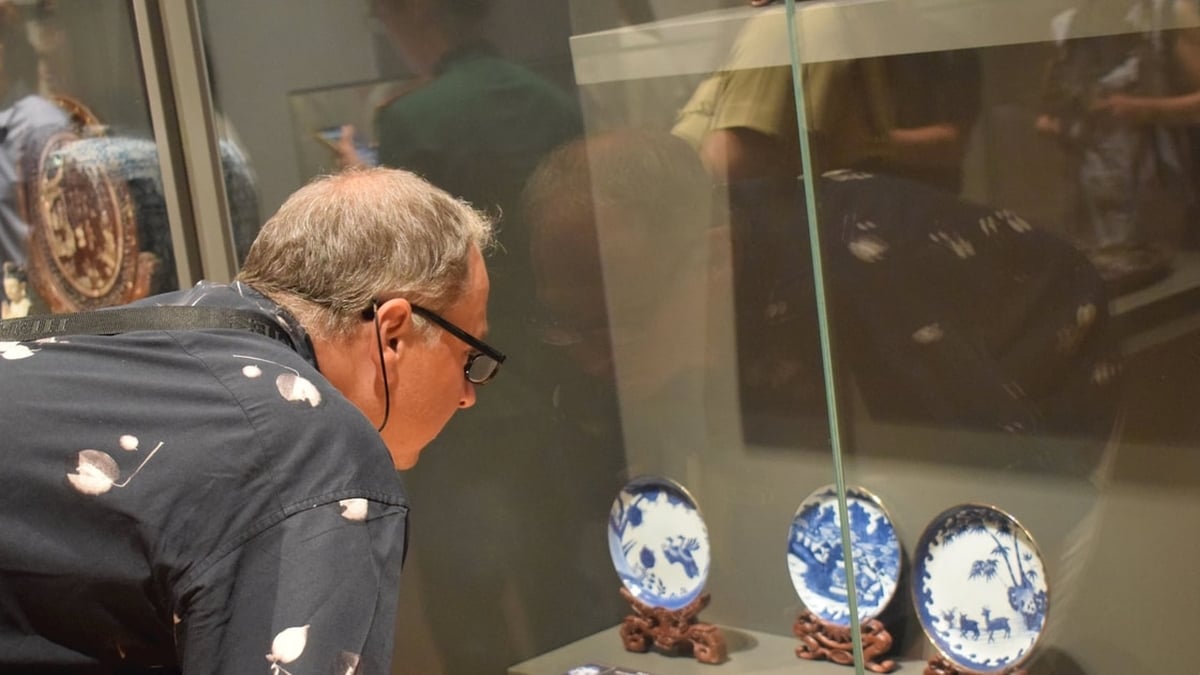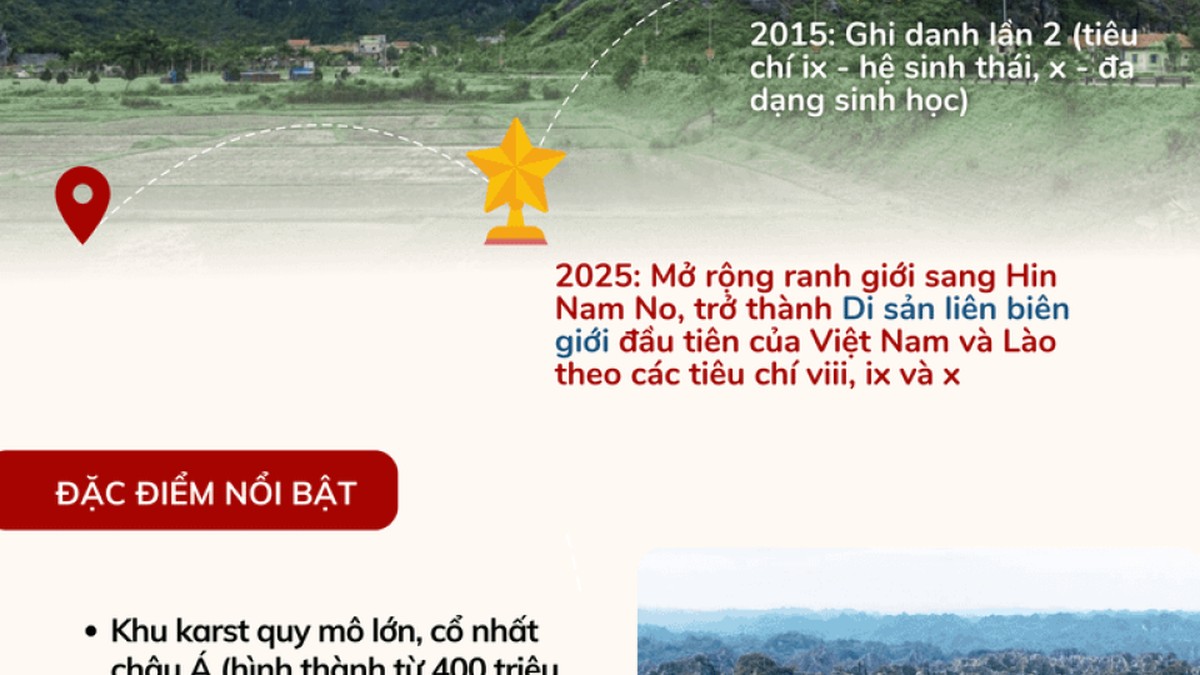Accidentally damage coral
Recently, in the Hon Mun, Hon Chong - Dang Tat area (Nha Trang Bay), a number of tour guides and TikTokers have filmed videos of their diving experiences, including the use of bread crumbs and instant noodles to attract fish for photography purposes. Mr. Nguyen Duc Minh Tan - Deputy Head of the Conservation Department (Nha Trang Bay Management Board) said that this behavior causes ecological imbalance due to excess food polluting the water, and at the same time causes fish to lose their natural foraging instincts, directly affecting the development of coral reefs.
Coral reef ecosystem in Nha Trang Bay. Photo: Nha Trang Bay Management Board |
On May 23, a nearly 1-minute clip with the content "No need to go far, no need for a tour - you can still see fish and coral right at Hon Chong beach" was spread on social networks, recording a scene of a person diving at Hon Chong, feeding fish and touching the coral reef. Mr. Dam Hai Van - Head of Nha Trang Bay Management Board affirmed that acts of encroachment and impact on coral reef ecosystems are strictly prohibited and will be handled according to regulations. Currently, the board has requested that travel companies absolutely not organize activities for tourists to attract fish with synthetic food, and at the same time, propagate to raise awareness among tourists about environmental protection and marine ecological balance in Nha Trang Bay.
In addition, at low tide (from 5pm to 8pm on the 1st and 15th of the lunar calendar), coastal coral reefs are exposed, causing many curious locals and tourists to come and take pictures, catch snails, and trample on corals, causing damage. Mr. Nguyen Dang Nam - a resident of Nha Trang said that this situation has been happening for many years due to the limited awareness of some locals and tourists. The failure to install a buoy to divide the Hon Chong - Dang Tat sea area also makes it difficult for people to identify the prohibited area, leading to entering areas with recovering coral reefs. It is known that in the Master Plan for Restoring Nha Trang Bay to 2030 issued by the Provincial People's Committee in November 2022, there is a task of reviewing and delimiting protected areas with recovering corals, but up to now, the buoy to divide the area has not been installed, causing difficulties in management.
Need to raise awareness of protection
According to research by the Institute of Oceanography , coral reefs in Khanh Hoa are mainly distributed in shallow coastal waters and islands, including some large reefs such as: Grandbank (Nha Trang Bay), Thuy Trieu (north Cam Ranh)... In recent years, the coral reef ecosystem in Khanh Hoa has been seriously degraded, partly due to the pressure from increasing tourism activities. Experts warn that humans are "uninvited guests" under the sea, and need to behave properly with marine creatures: Do not touch, do not chase, do not approach to avoid scaring them.
Dr. Vo Si Tuan - former Director of the Institute of Oceanography, believes that coral reefs can be protected by specific actions such as: Do not buy or sell live corals or reef fish for decoration; do not touch or trample on corals; improve diving skills to avoid collisions. One diver touching coral may not cause serious consequences, but when many people repeat that behavior thousands of times a year, it will leave serious consequences. We need to respect the living space of marine life, because seemingly harmless actions can also cause stress to them. Travel to the sea according to the principle: "Kill nothing but time, take nothing but pictures, and leave nothing but bubbles".
Mr. Tuan also proposed that it is necessary to strictly manage diving services, limit the number of guests and only allow people with professional diving licenses to participate in coral diving, instead of allowing this activity to take place on a mass scale as it is now.
Coral reefs are the most diverse ecosystems in the ocean. Although they cover less than 1% of the ocean, they are home to about 25% of all marine species. They provide shelter and food for thousands of fish and other creatures, and act as “natural barriers” that help reduce coastal erosion. Coral reefs grow for thousands of years, making them vulnerable to damage, but vital to marine life.
THAI THINH
Source: https://baokhanhhoa.vn/xa-hoi/202505/bao-ve-de-cac-ran-san-ho-phat-trien-1e343b7/





































































































Comment (0)